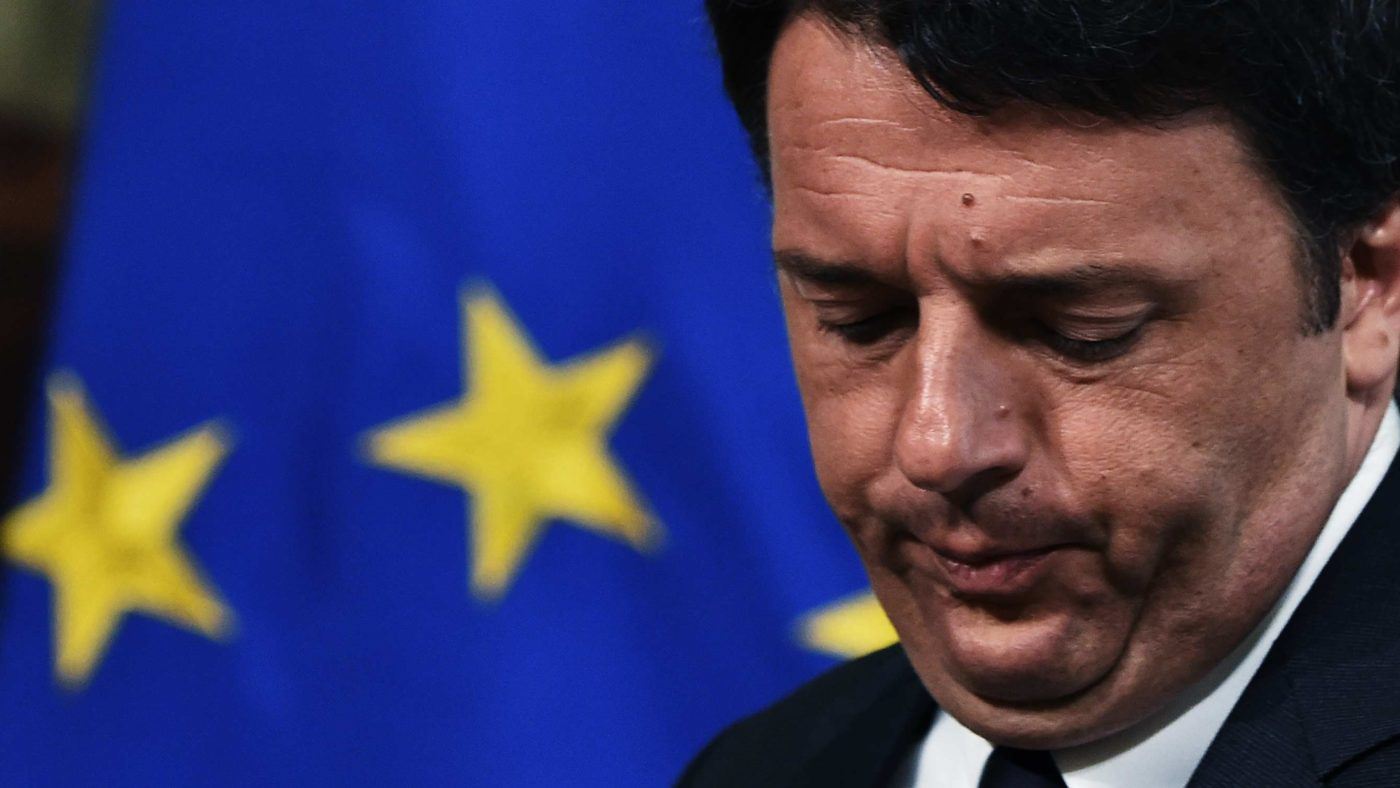Markets mostly “Meh” Response to Italian Referendum Vote is a Mistake
Sunday marked the third time in less than five months that we’ve had a major political event trigger a market response. The outcome of the first of such, Brexit, took the market by surprise and caused major declines across much of the global financial markets. However, after having gotten himself into quite the tizzy, Mr. Market shortly decided, “Ehhh, maybe not such a bad thing,” and the market not only recovered but climbed higher in the ensuing weeks.
The second event was the Trump surprise. Initially, the major U.S. market indices plunged so far, so fast on Election Night 2016 that overnight futures trading had to be halted. Once again Mr. Market recovered from his meltdown and in a matter of hours, decided that not only was this not such a bad thing but decided to launch one epic rally heretofore called the Trump Trade.
Sunday the Italian referendum came in as expected with the “No” vote prevailing, so unlike the prior two, no surprise here. As for Mr. Market’s reaction, well he looks to be a bit worn out from all the drama since June and outside of Italian bank stocks, things are relatively calm.
Who would have guessed it would be the Italians to delivered non-drama drama while the stiff upper lip Brits delivered a meltdown? It also snowed in Hawaii over the weekend, go figure.
For as much as Mr. Market overreacted to the U.K. surprise, we think he is, at least in the long run, underestimating the magnitude of Sunday’s vote.
Safe to say that the Italians have given the world a very clear message that reforms, as much as they are desperately needed, are unlikely to see the light of day given the utter mistrust Italians have for their government, regardless it seems of who is manning the helm.
There could be some peppiness from the Austrian election which saw the nationalistic and vocal anti-EU candidate lose out to the Green Party candidate, who ran as an independent, giving us the first non-populist vote this year, but most likely the lack of drama is tied to faith in central bank incursions. A recent Bloomberg News poll of economist found a whopping 89% expect to see the European Central Bank extend its quantitative easing plan, both in magnitude and duration. The one move we see that directionally does make fundamental sense is the rise in Italian bond yields, up some 13 basis points versus the rest of the region rising in the 3 to 6 basis point range.
Granted, we’ve also seen some evidence in increasing economic health, with the Eurozone services/manufacturing PMI composite improving to an 11-month high of 53.9 in November from 53.3 in October. Despite Mr. Market’s initial Brexit panic, the U.K. service sector PMI rose to a 10-month high in November of 55.2 up from 54.4 in October. But that’s not Italy, which is the third largest economy in the European Union and the eighth largest economy in the world with the second highest debt-to-GDP ratio; the crown in that race belongs to Greece.
Italy’s banking sector is in crisis. This vote came right as Banca Monte dei Paschi di Siena (say that five times fast) is deep in recapitalization efforts, which could now be thwarted. If that happens and a solid government-backed rescue plan isn’t immediately presented, we are back in contagion mode that could easily spread outside to Germany’s beleaguered Deutsche Bank, which lost 90% of its market cap over the past ten years and 35% this year alone. Meanwhile, Eurozone finance ministers are meeting today in Brussels to assess the second bailout plan for Greece to determine if it is solid enough to warrant the release of the next tranche of funding. We’re taking the odds there will be a large uptick in Brussels minibar tabs this week.
Italy has an estimated €360 billion in nonperforming loans and a government debt-to-GDP ratio of 133%, so a bailout isn’t exactly a walk in the park.
Italy is one of the six founding members of the European Union and has traditionally been one of its most enthusiastic supporters, but that is changing profoundly and for good reason. Since the financial crisis has lost over twenty-five percent of the industrial production and youth unemployment stands at almost forty percent in a deflationary economic environment that is only increasing the nation’s already cumbersome debt burden. Waiting in the political wings upon Prime Minister Renzi’s crushing defeat this weekend are the anti-European Union Five Star Movement and Lega Nord. As the Italian economy struggles, these populist movements are gaining traction and stirring up more anti-euro sentiment.
While Italy’s economy is stagnating its political center is disintegrating, making reforms all the more challenging. It has very few other tools at its disposal with no ability to implement monetary stimulus and its already high debt load limiting fiscal stimulus options. If the nation can’t get its economy going, an EU bailout would likely require so much money that it would likely trigger a political revolt in Germany’s parliament. That’s the same German parliament that is facing an election next September.
If Italy cannot get its economy moving, and the realities here paint a picture with feeble hope, we could easily see pressure mount for it to leave the Eurozone both from within and outside the country. While Brexit involves messy renegotiations, it doesn’t threaten the single currency. An Italy exit, on the other hand, could not only threaten the currency but unleash a financial crisis in the region.
On any one day, Mr. Market tends to be rather shortsighted. We suspect when it comes to this referendum, the Italian drama is just getting started.


